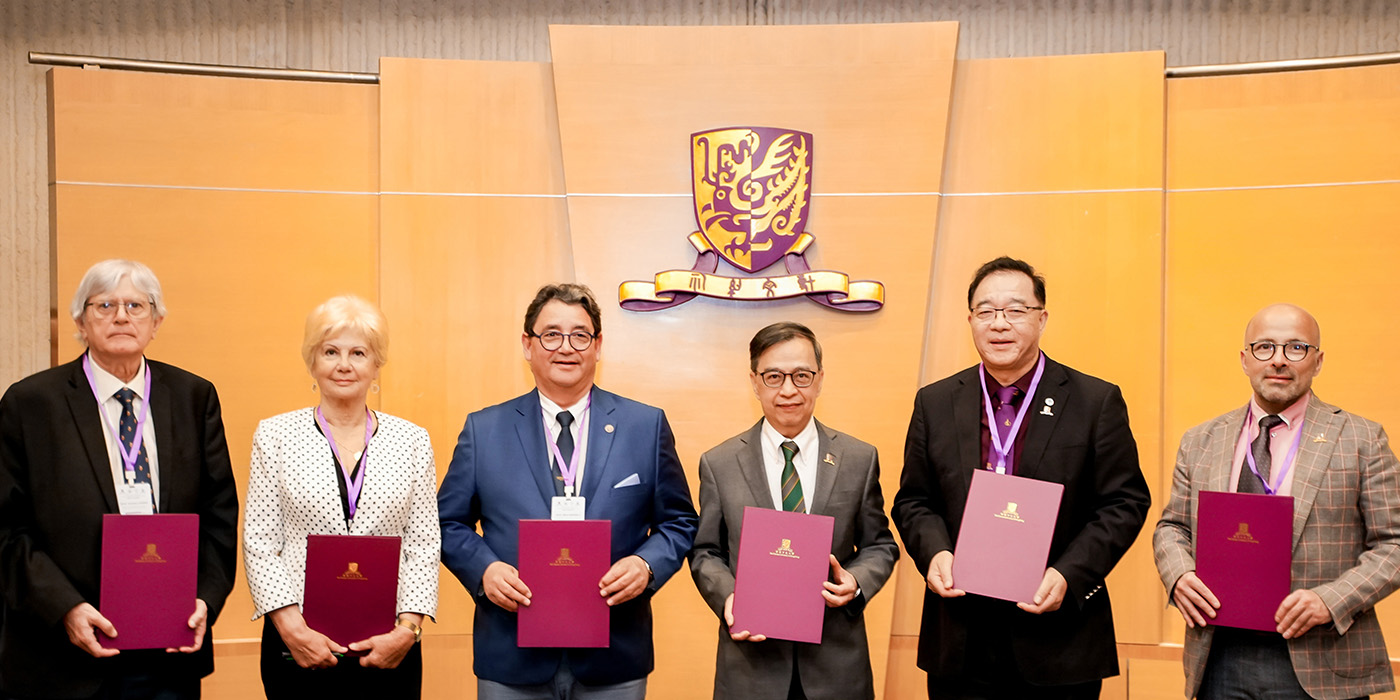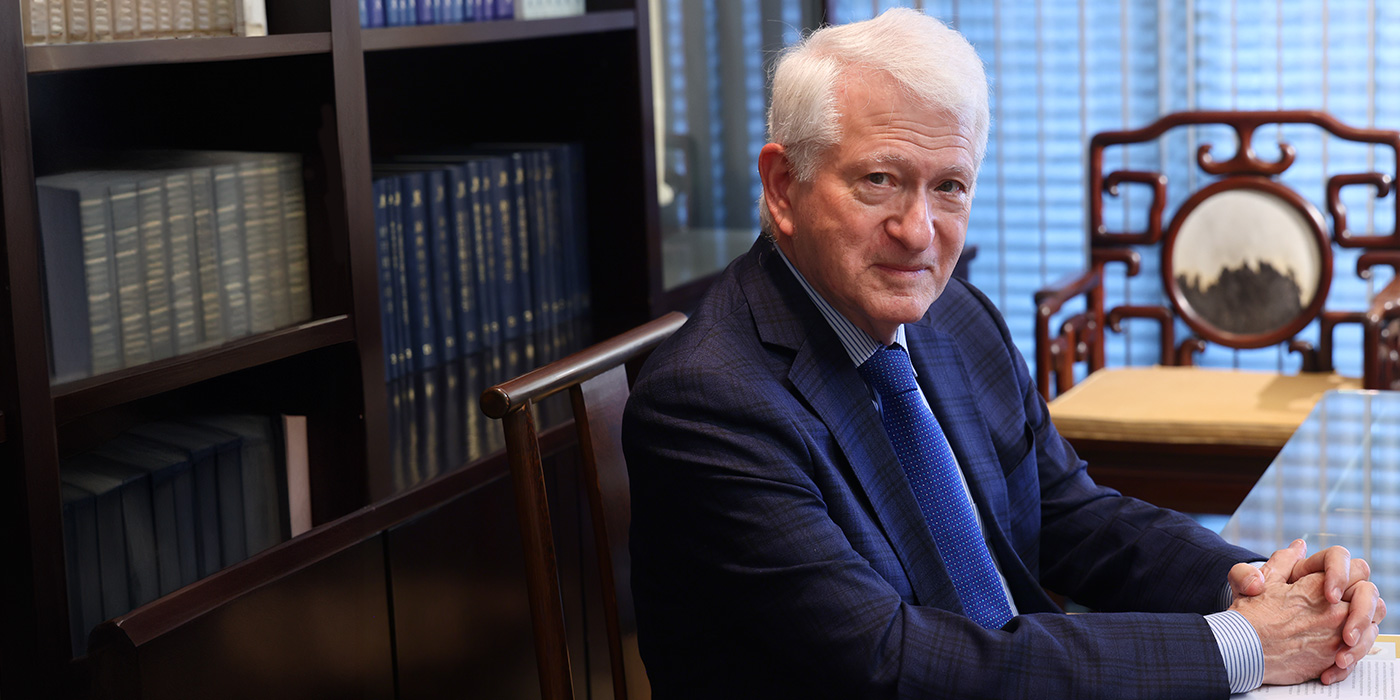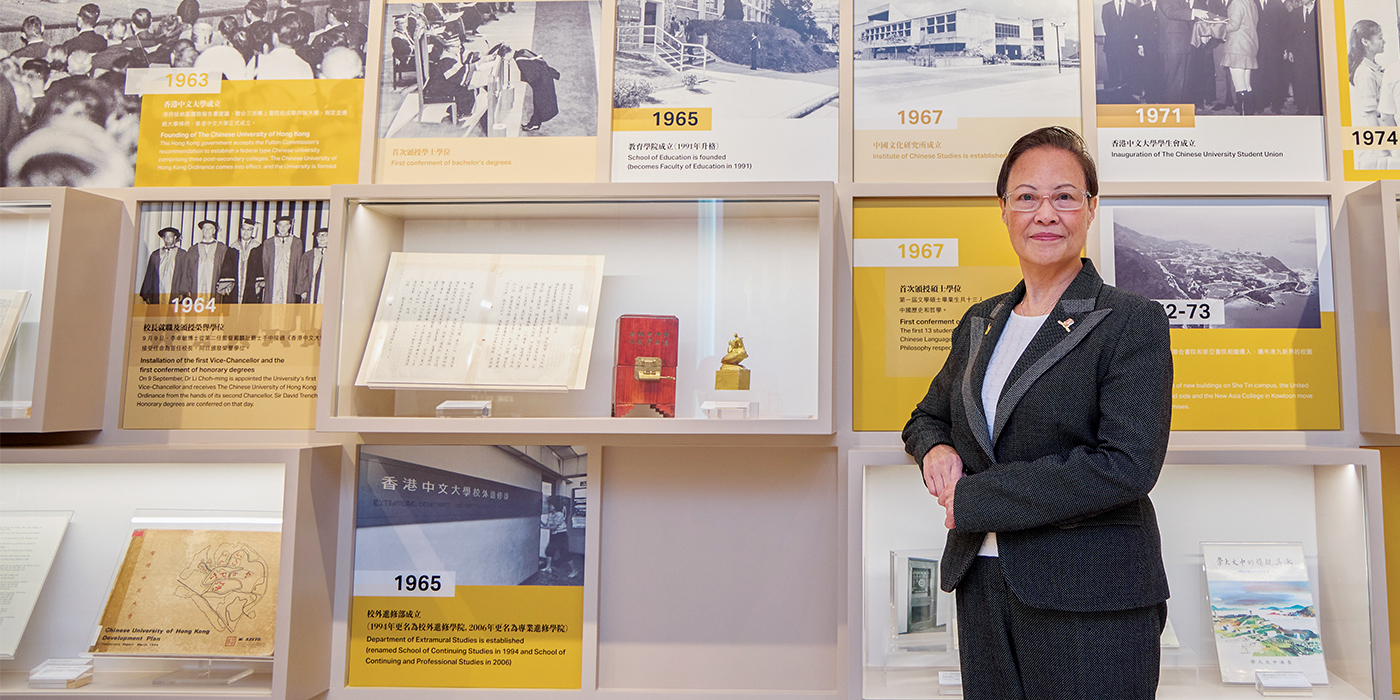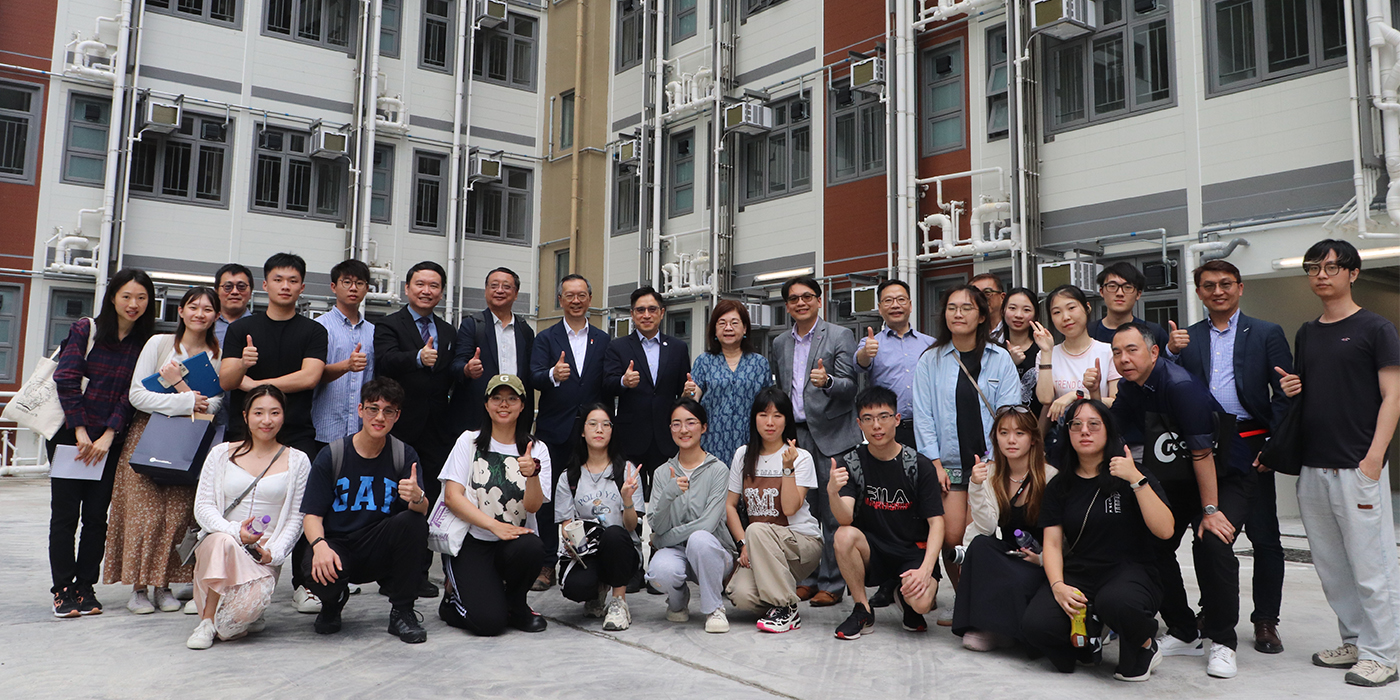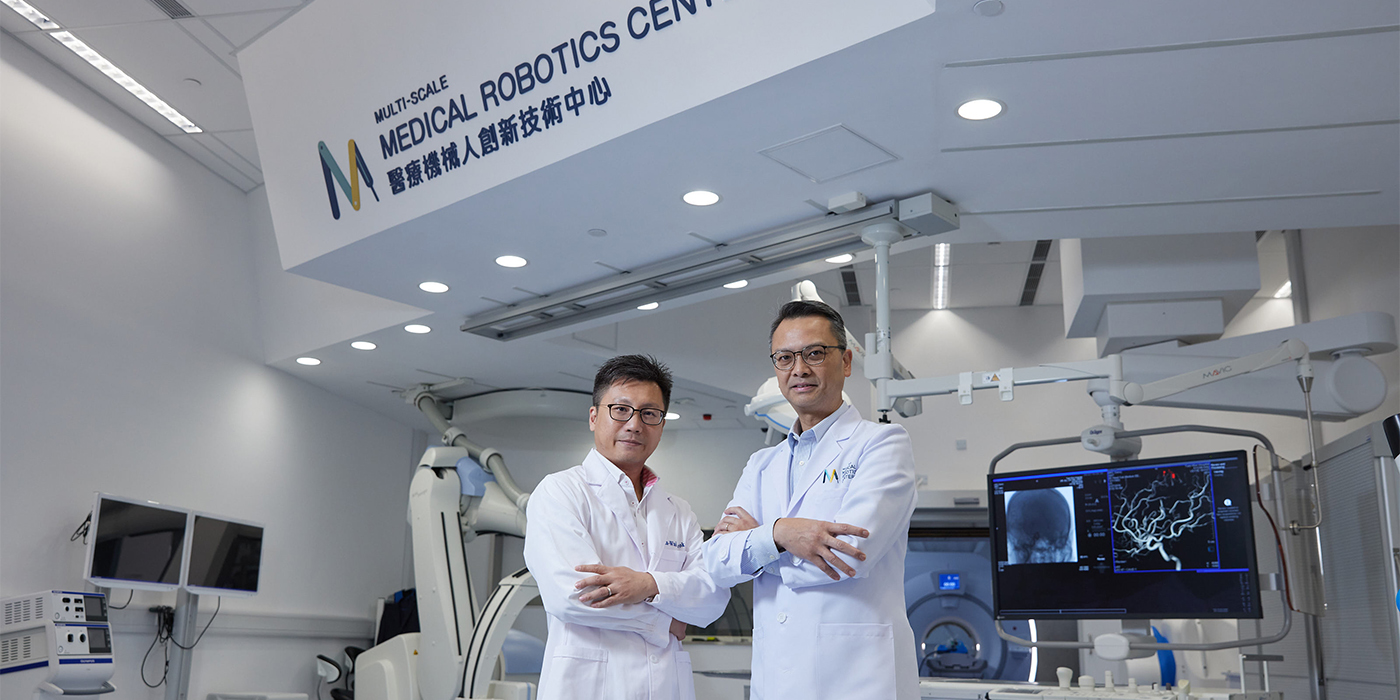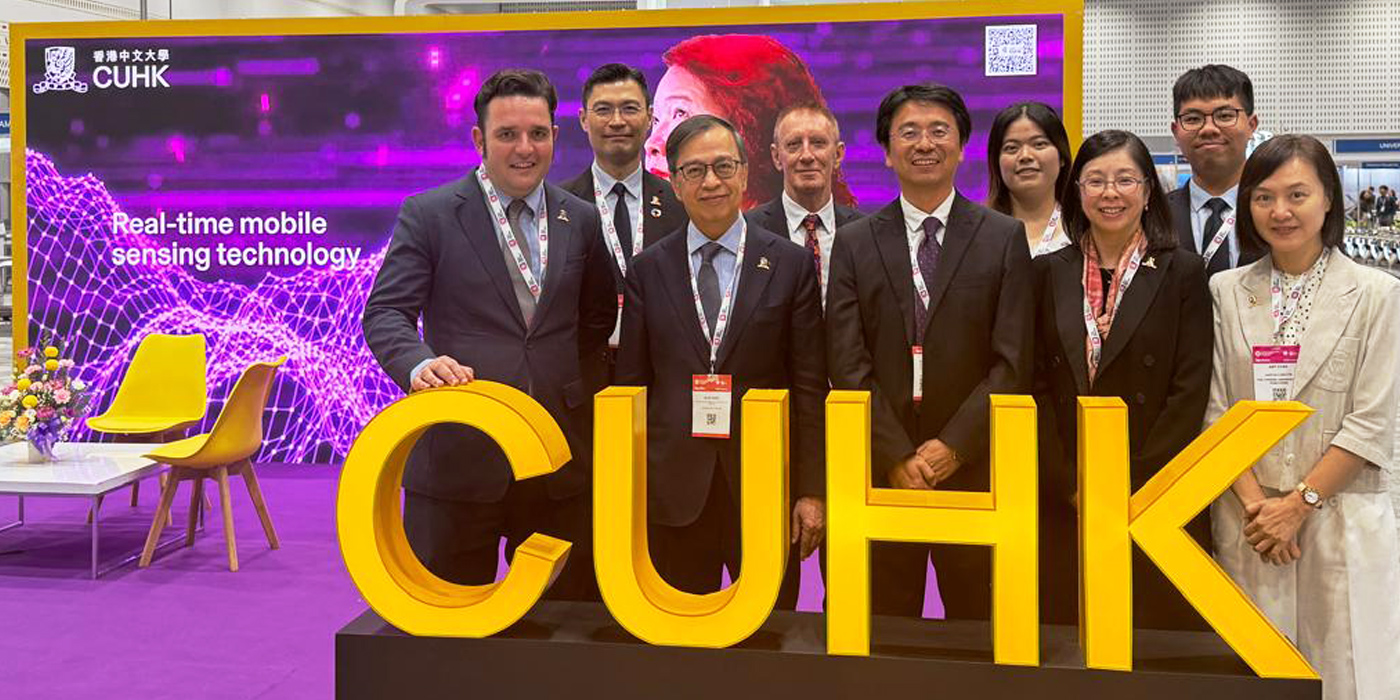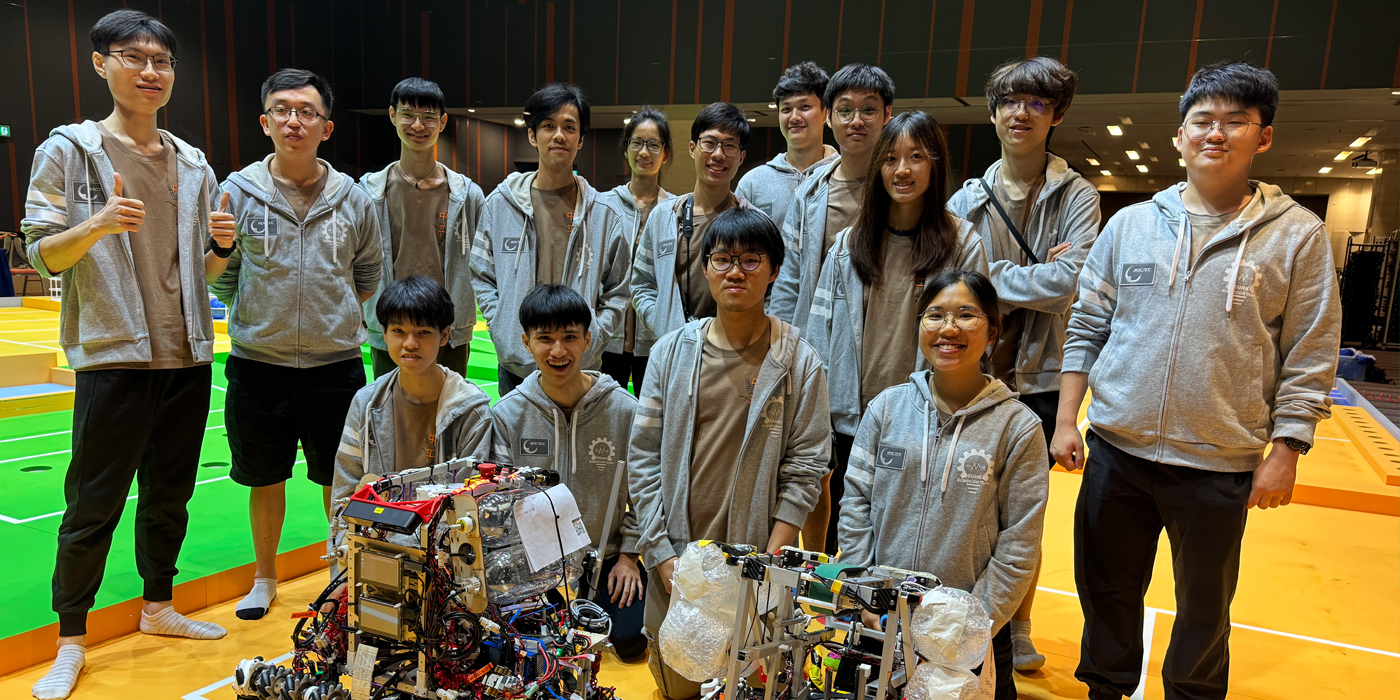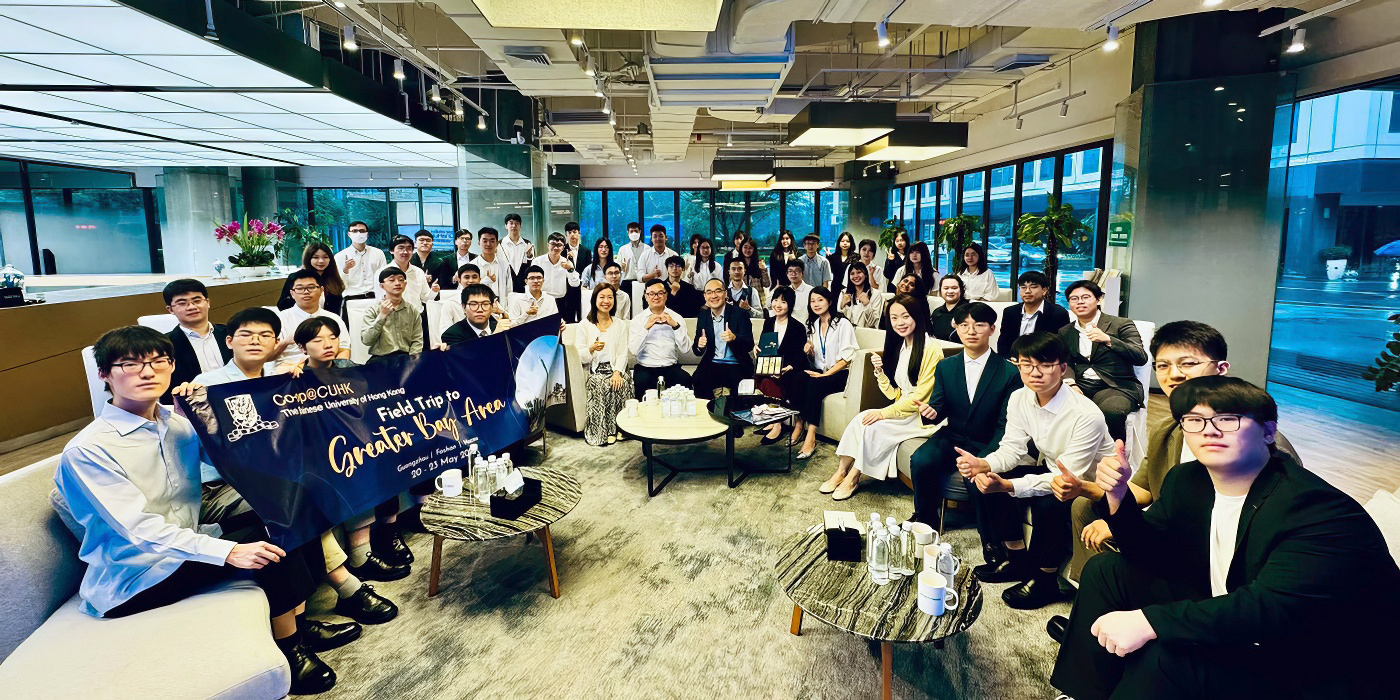(From left to right) Professor András Varró, chairman of the National Academy of Scientist Education of Hungary, Professor Éva Kondorosi, vice-president (ex officio) of Academia Europaea, Professor Béla Merkely, rector of Semmelweis University, CUHK Provost Alan Chan, Professor Qin Ling and Professor Péter Hegyi, chair of the clinical and veterinary science section at Academia Europaea at the unveiling ceremony of the new network
European partners in translational medicine welcomed at CUHK
CUHK has hosted a two-day exchange programme for its European partners in the Translational European-Asian Network (TEA-NET), which was formed last December to foster research collaborations and exchanges in translational medicine.
A delegation of leaders and scholars from the three institutions in Europe: Semmelweis University, Academia Europaea, and National Academy of Scientist Education of Hungary visited CUHK on 16 and 17 May.
At the symposium held at Cho Yiu Conference Hall on 16 May, the delegates gave an introduction of their own organisations and the programmes and strategies in translational medicine. CUHK Pro-Vice-Chancellors Professor Sham Mai-har and Professor Chan Wai-yee delivered welcoming remarks and gave an introduction of the University. Professor Qin Ling, Choh-Ming Li Professor of Orthopaedics and Traumatology and also the executive director of TEA-NET, outlined the work of the new network.
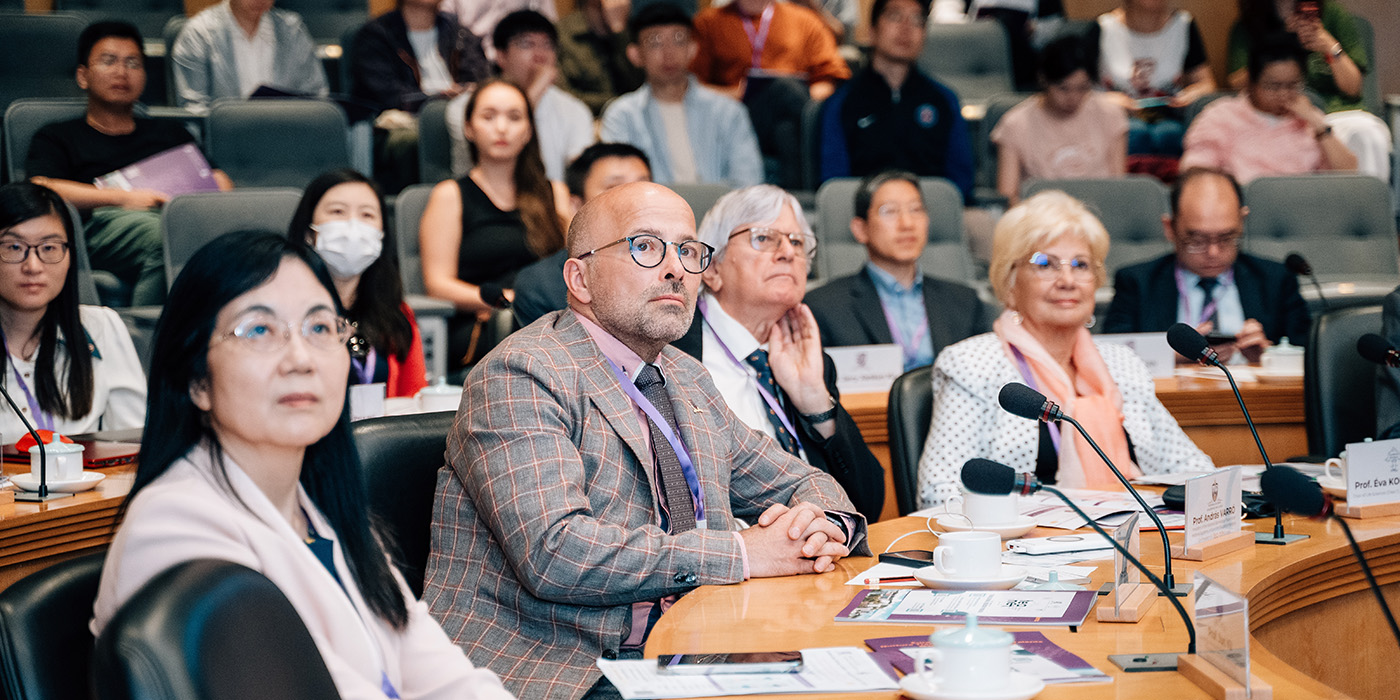
The delegation visited the Faculty of Medicine the next day. At Choh-Ming Li Basic Medical Sciences Building, they were received by Dean of Medicine Professor Philip Chiu Wai-yan, before joining different topical discussions with specialists from the faculty.
TEA-NET was established by CUHK and the European institutions last year as an extension of Academia Europaea’s translational medicine working group, which processes and analyses high-quality data collected in the field of biomedical sciences with full European coverage, to include Asian research and joint projects. The new network aims to facilitate cross-fertilisation of ideas among academics and nurture excellent researchers and clinical scientists in the field.
The network membership also included CUHK’s collaborating institutions in Shenzhen, including Shenzhen Institute of Advanced Technologies, CUHK Shenzhen Research Institute, and CUHK Hong Kong–Shenzhen Innovation and Technology Research Institute (Futian). The University will serve as a vibrant platform for the network’s educational, research, and clinical activities. It will also secure financial resources necessary for its advancement and growth.

